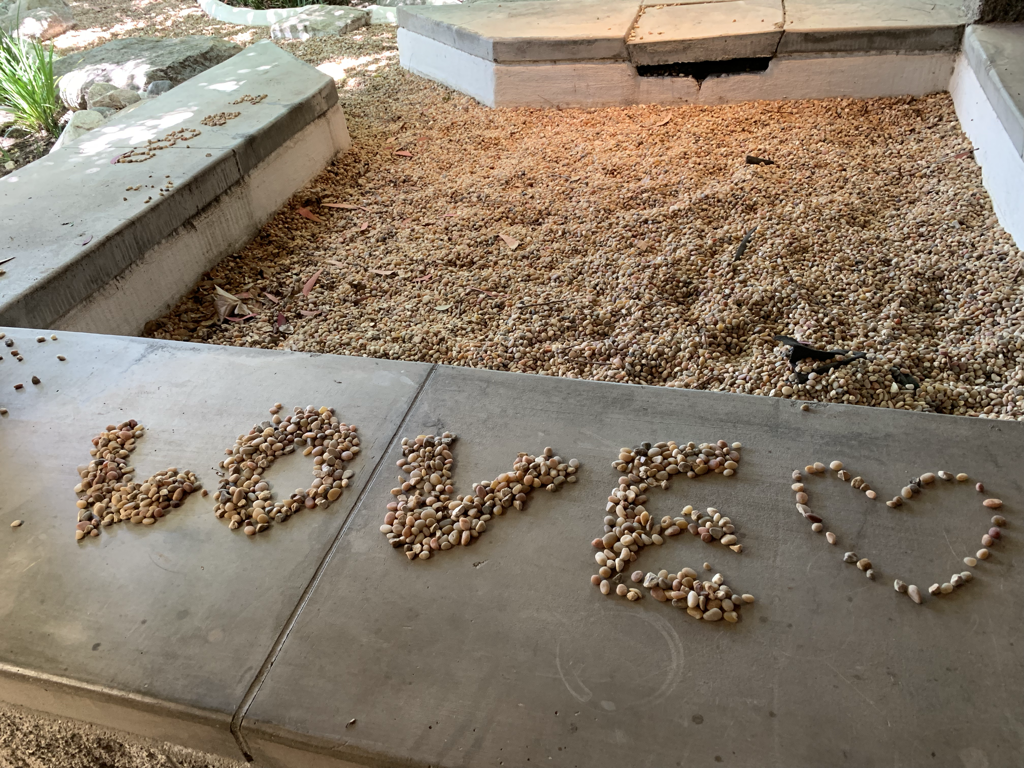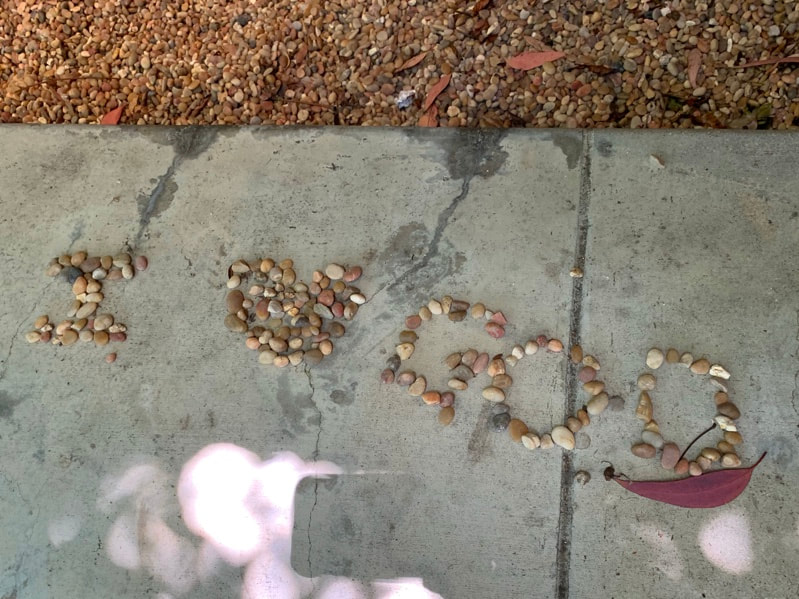The third [revelation] is that our Lord God, almighty wisdom, all love, just as truly as [God] has made everything that is, so truly [God] does and brings about all that is done . . . we are securely protected through love, in joy and sorrow, by the goodness of God. . . . All shall be well, and all shall be well, and all manner of things shall be well. —Julian of Norwich Pierre Teilhard de Chardin (1881–1955), a French Jesuit priest who trained as a paleontologist and geologist, boldly declared love is “the very physical structure of the Universe.” That is a very daring statement, especially for a scientist to make. Teilhard argues that gravity, atomic bonding, orbits, cycles, photosynthesis, ecosystems, force fields, electromagnetic fields, sexuality, human friendship, animal instinct, and evolution all reveal an energy that is attracting all things and beings to one another, in a movement toward ever greater complexity and diversity—and yet ironically also toward unification at ever deeper levels. This energy is quite simply love under many different forms. Franciscan priest and scholar Richard Rohr describes Teilhard’s theory like this, “Love, the attraction of all things toward all things, is a universal language and underlying energy that keeps showing itself despite our best efforts to resist it. It is so simple that it is hard to teach, yet we all know love when we see it.” Love is the basis of all things. St. Paul wrote, “Without love I am nothing...” After all, as Rohr so aptly points out, there is not a Native, Hindu, Buddhist, Jewish, Islamic, or Christian way of loving. There is not a Methodist, Lutheran, or Orthodox way of running a soup kitchen. There is not a gay or straight way of being faithful, nor a Black or Caucasian way of hoping. We all know positive flow when we see it, and we all recognize resistance and coldness when we feel it. All the rest are mere labels. One label that seems to be a constant, and one that always seems to unarguably stick is this: God is love. St. Paul makes this bold statement in 1 Corinthians, but somewhere between reading this passage at wedding ceremonies and funerals we miss his powerful point. Paul sees love in all things, and equates it to God because he has a closeness to his Creator and a relationship with God through Christ that only love is the only word that suffices to describe it. Paul is not simply speaking about the emotional feelings we have for one another but the bond between Our Creator and all creation. I invite you to replace the word “love” with the word “God” to get a sense of how big Paul’s declaration really is: “Love is patient and kind; love does not envy or boast; it is not arrogant or rude. It does not insist on its own way; it is not irritable or resentful; it does not rejoice at wrongdoing, but rejoices with the truth. Love bears all things, believes all things, hopes all things, endures all things. Love never ends.” (1 Corinthians 13:4-8 ESV) That bond of love is what unifies each of us to our Creator and to every thing in creation. Rohr concludes, “When we are truly “in love,” we move out of our small, individual selves to unite with another, whether in companionship, friendship, marriage, or any other trustful relationship.” He gives the example of someone deliberately befriending a person standing alone at a party who is not attractive to you or with whom you have nothing in common. “That would be a small but real example of divine love flowing. Don’t dismiss it as insignificant. That is how the flow starts, even if the encounter doesn’t change anyone’s life on the spot.” Rohr, like Paul and Teirhard, look at Jesus in a particular light...the light of God’s love. It was Jesus, Divine Love manifested into human flesh, who invited us to cross the lines and tear down the walls that separate us so that Divine Love can be made manifest in us. With all the tribal divisions, elitism and our ego’s need to be superior and right, to name a small few, we seem to only limit Love to a thin, lower case word. We need to “move beyond our small-minded uniformity, we have to extend ourselves outward, which our egos always find a threat, because it means giving up our separation, superiority, and control.” How much is lost when we refuse to cross the “borders” that keep us apart? When we refuse to help or forgive or care for those who are part of us in creation? What does it say to the limiting power of lowercase love? And how does it reject Divine Love? How much are the people for whom Christ died suffering because we remain paralyzed and divided by our differences when we should be working together as the hands and feet of Jesus in the world? There must be a better and more efficient way to carry out our roles within the mission of God. Surely, we can do better.” - Christena Cleveland Work Cited:
Adapted from Richard Rohr, The Universal Christ: How a Forgotten Reality Can Change Everything We See, Hope For, and Believe(Convergent Books: 2019), 69-70. Julian of Norwich, Revelations of Divine Love, chapters 1 and 27 (Long text), trans. Elizabeth Spearing (Penguin Classics: 1998), 41, 79. Pierre Teilhard de Chardin, “Sketch of a Personal Universe,” Human Energy, trans. J. M. Cohen (Harcourt Brace Jovanovich: 1962), 72. Christena Cleveland, Disunity in Christ: Uncovering the Hidden Forces That Keep Us Apart (InterVarsity Press: 2013), 20.
0 Comments
Leave a Reply. |
Ian MacdonaldAn ex-copywriter turned punk rock pastor and peacemaker who dedicates his life to making the world a better place for all humanity. "that they all might be one" ~John 17:21“Prius vita quam doctrina.”
~ St. Thomas Aquinas (1225–1274) * “Life is more important than doctrine.”
Archives
June 2024
|

